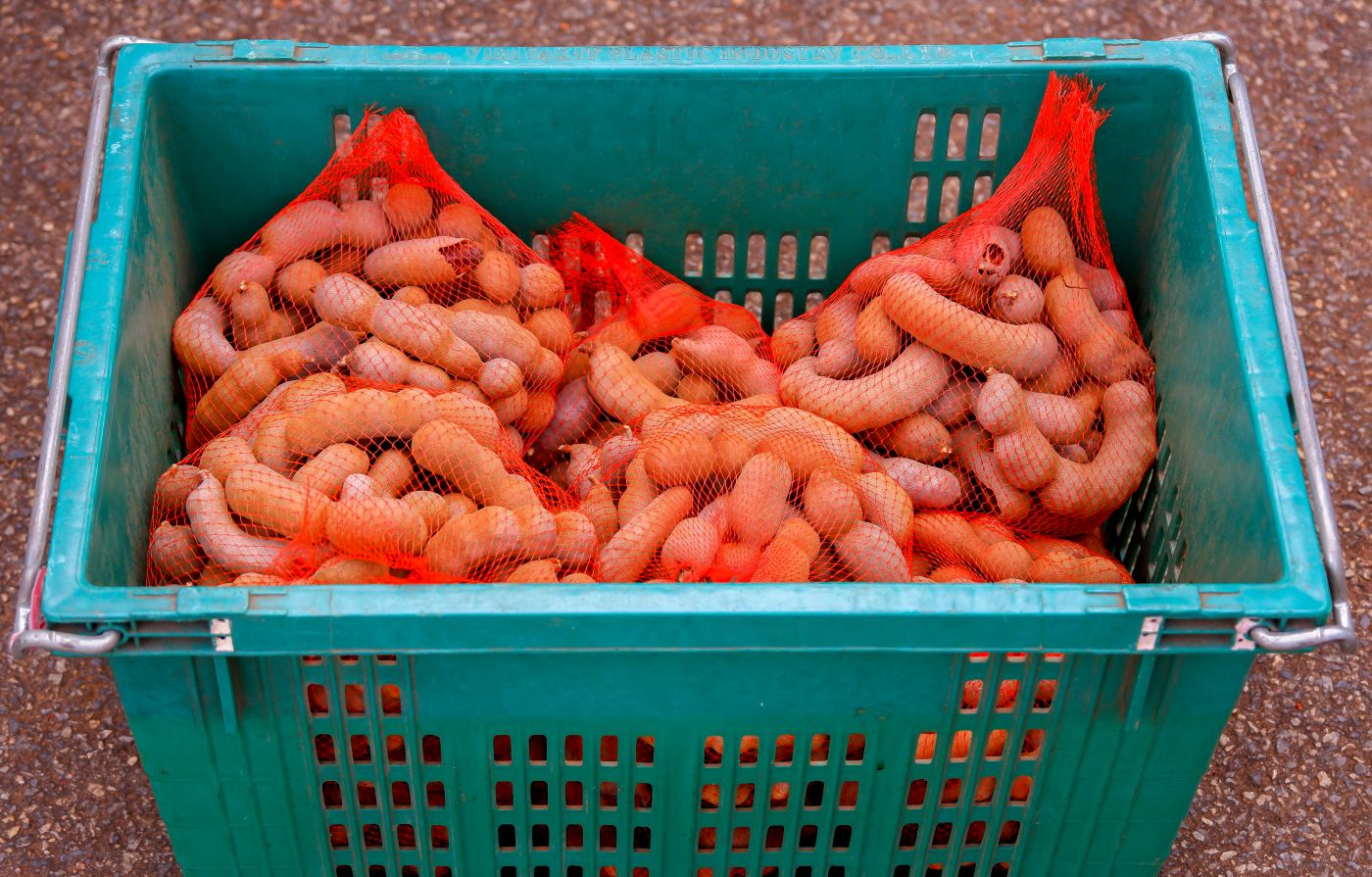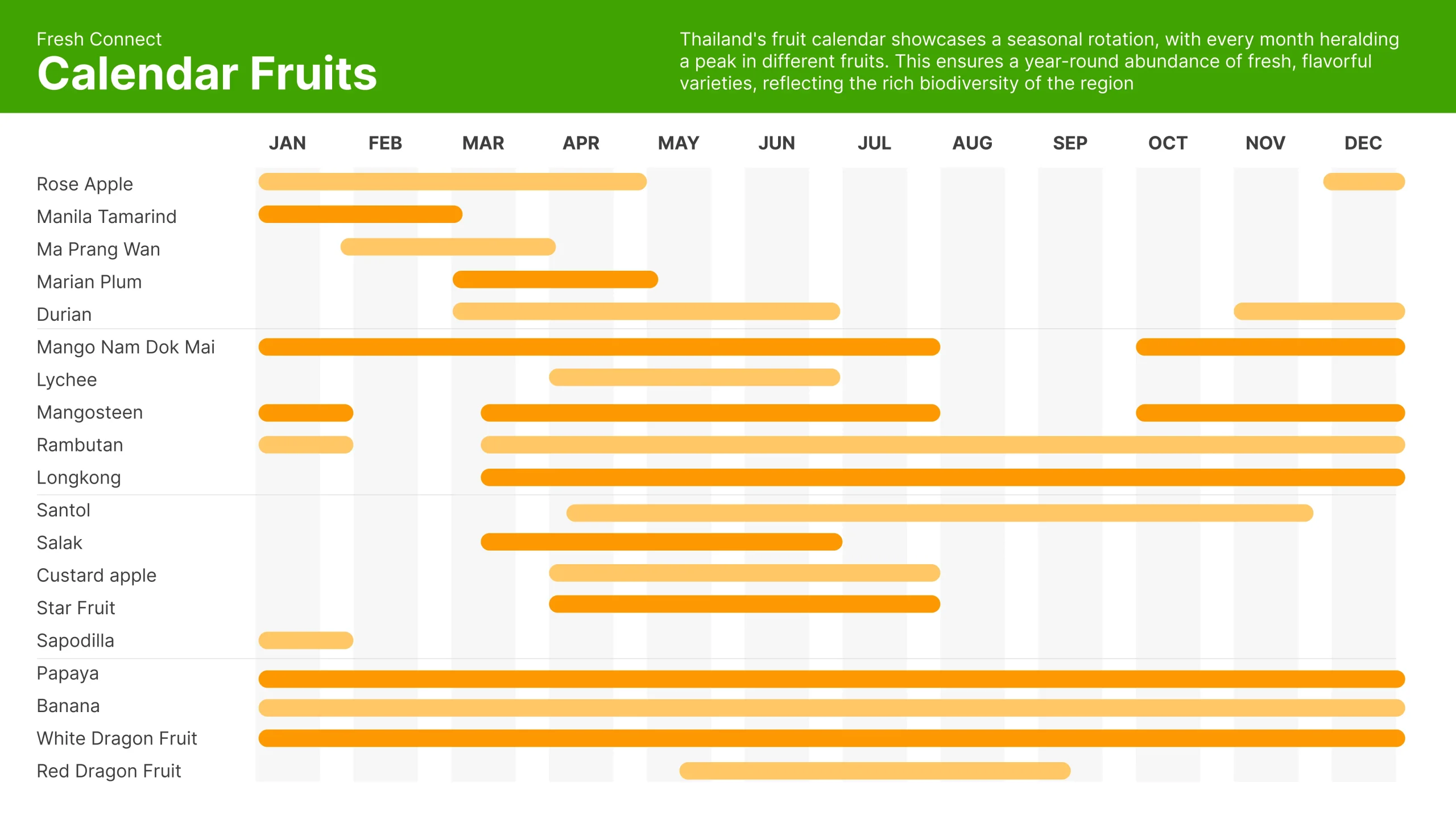The global demand for sweet tamarind continues to expand as food manufacturers, beverage companies, and confectionery brands incorporate its tangy-sweet flavor into a wide variety of products.
Both a tropical fruit and a legume, sweet tamarind is used as a natural flavor enhancer in sauces, candies, concentrated beverages, and many more, offering natural acidity and complexity that appeal to mass consumers.
Among all producing countries, Thailand stands out as the leading source of sweet tamarind thanks to its ideal climate, advanced cultivation practices, and stringent export standards.
Here’s an in-depth guide on exporting Thailand sweet tamarind, from prices and seasonality to packaging considerations and international certifications.
Commercial Uses of Sweet Tamarind
Thailand sweet tamarind is a versatile product with many commercial applications in industries such as:
- Food manufacturing: Tamarind is used in sauces, marinades, curries, and broths lending tangy depth and sweetness.
- Beverages: Used in juices, teas, syrups, and concentrates, tamarind’s distinctive taste enhances global beverage brands.
- Confectionery: Tamarind candies, jellies, and snacks enjoy growing popularity across Asia and Latin America.
- Retail: Whole pods and packaged tamarind paste serve supermarket and specialty food channels seeking authentic Thai products.
What Are the Benefits of Processed Sweet Tamarind?
Long Shelf Life and Storage
Dried tamarind does not spoil easily. If stored properly, these products can last for up to a year.
Ready-to-use
Tamarind paste is convenient to use and helps in the manufacturing of many sauces, drinks, and confectionery.
Customization
There are many seedless and tailored packaging options, accommodating buyers across many industries.
What Drives the Prices of Thailand Sweet Tamarind?
Understanding the factors behind Thailand sweet tamarind helps you negotiate and plan. Here are some common drivers behind the fluctuating prices of sweet tamarind:
When is Tamarind in Season?
The primary tamarind season in Thailand typically runs from late November to March, when supply peaks and prices stabilize. The highest quality fruits are usually available during the cooler months.
As an importer, you are advised to plan your purchase schedules around this window benefit from the freshest products and most favorable pricing, as prices may be higher during off-season months due to reduced availability and higher storage or processing costs.
The Type of Sweet Tamarind Product: Fresh, Dried, or Paste?
Fresh tamarind are usually more expensive because of its limited shelf life and stricter handling requirements. Meanwhile, dried tamarind or paste are cheaper and easier to store.
Packaging and Logistics
Packaging quality has a direct impact on price and shelf stability. Exporters offering vacuum-sealed, moisture-controlled packaging can reduce the risk of spoilage during long-distance transport. Air freight ensures faster delivery for premium fresh tamarind, while sea freight offers a more economical solution for wholesale buyers.
Certifications and Added-value Assurances
Buyers often pay a premium for certified tamarind. Exporters adhering to GLOBALG.A.P., HACCP, and USDA Organic standards ensure safety and traceability from farm to shipment. Certified produce strengthens importer credibility and ensures compliance with international regulations.
Key Growing Regions of Thailand Sweet Tamarind
Phetchabun, Nakhon Ratchasima, and Chiang Mai are Thailand’s major sweet tamarind producers. Phetchabun, in particular, is renowned for its “Makham Wan Phetchabun”, a sweet, low-acid variety preferred by export markets. Annual supply trends closely follow weather patterns, with rainfall and temperature having a direct impact on harvest yields and pod quality.
Quality Standards Expected by Global Markets

High Fruit or Pulp Quality
Global markets emphasize strict quality control for imported sweet tamarind. Characteristics of high-quality sweet tamarind include:
- Uniform pod size and glossy brown shells
- Sticky, moist pulp with minimal fiber
- Balanced sweetness and tartness without sour overtones
- Low seed-to-pulp ratio for higher yield per kilogram
International Certifications
Global retailers, wholesalers, and import authorities require sweet tamarind to be processed in facilities that comply with international certifications, such as USDA Organic, HACCP, GLOBALG.A.P., IFOAM, and SMETA. This ensures safety and sustainability.
Traceability and Sustainability Practices
For today’s global buyers, traceability is a crucial factor. Fresh Point partners with local farmers, emphasizing pesticide-free farming, responsible water use, and transparent supply chains. Every shipment can be traced back to its origin, reinforcing transparency and buyer confidence.
How Planning Benefits Importers
Long-term purchase agreements or forward contracts help you lock in prices and ensure supply continuity. Working closely with experienced exporters allows buyers to adjust order volumes based on yield forecasts and shipping timelines.
Connect with Fresh Point
For international buyers seeking reliability and freshness, Fresh Point is your trusted partner for tamarind wholesale in Thailand.
Here’s what we offer our valuable global buyers:
- Decades of experience in exporting to global markets.
- Direct farmer partnerships ensuring sustainable, traceable sourcing.
- Modern processing facilities delivering consistent quality across all formats.
- Flexible logistics and packaging tailored to your business needs.
Choosing Fresh Point means partnering with a certified sweet tamarind exporter in Thailand committed to building long-term, dependable supply relationships worldwide. Contact us today to learn how we can help your fruit and vegetable import business grow.
Established in 2009, Fresh Point Co., Ltd. specializes in over 60 varieties of Thai fruits and vegetables. We offer customized packaging and labeling solutions for optimal freshness, while holding global certifications including Global GAP, HACCP, USDA, IFOAM, and SMETA. Get the the highest standards of quality, safety, and sustainability for your customers. For more information on Global GAP certification, visit What is GLOBALG.A.P.?.

